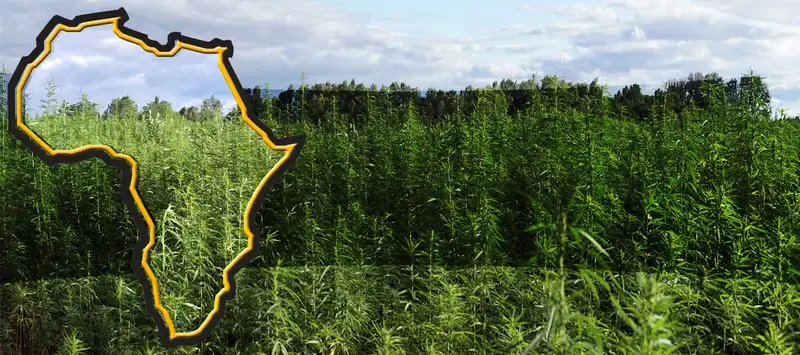| Status | Color |
|---|---|
| Illegal | |
| Medicinal | |
| Recreational | |
| Legal |
The legal status of cannabis varies widely across Africa. Some countries have taken steps towards legalization, particularly for medical use, while others maintain strict prohibition.
Cannabis has been used in Africa for centuries, often as part of traditional medicine and religious rituals.
Lesotho is currently the leading African country in terms of legal cannabis cultivation, with the first licensed producer in Africa.
Penalties can vary widely, from fines to long prison sentences, depending on the country and the amount of cannabis involved.
Cannabis has a long and complex history in Africa, and it remains an integral part of several societies across the continent. Used for recreational, medicinal, and religious purposes, it is both celebrated and vilified. This essay explores the rich tapestry of cannabis within Africa, focusing on its historical context, prevailing laws, efforts towards legalization, and the impacts these have had on the continent.
Cannabis, locally known as ‘dagga’ in Southern Africa and ‘bhang’ in East Africa, is believed to have arrived on the African continent over a millennium ago. Studies suggest it came via Arab or Indian traders, spreading from North Africa down to the south. Traditionally, it has been used for medicinal, recreational, and spiritual practices. The social and religious significance of cannabis remains evident in various African communities, but the arrival of colonial powers and subsequent legislation resulted in significant restrictions on its use.
Cannabis laws in Africa vary significantly, reflecting the diversity of the continent. Broadly, most countries outlaw the cultivation, sale, and use of cannabis. However, attitudes are slowly shifting, prompted by potential economic benefits, changing international views, and a recognition of traditional practices.
South Africa is a notable example of evolving legislation. In a landmark ruling in 2018, South Africa’s Constitutional Court decriminalized the private use and cultivation of cannabis by adults. However, the sale and public use of cannabis remain illegal.
In a significant shift towards capitalizing on the global cannabis market, Lesotho and Zimbabwe legalized the cultivation of cannabis for medicinal and scientific purposes in 2017 and 2018, respectively. Both countries have a favorable climate for cannabis cultivation and see it as a means to stimulate their economies and create jobs.
In Morocco, cannabis cultivation is technically illegal but widely tolerated due to its economic importance, particularly in the Rif region. In 2021, the country passed a law legalizing the cultivation of cannabis for medical and industrial uses.
On the opposite end of the spectrum, Nigeria has some of the harshest drug laws in Africa. Possession of cannabis can lead to a minimum sentence of twelve years imprisonment.
There has been a growing push for cannabis legalization across Africa. The African Cannabis Report™, published by Prohibition Partners, suggests that the legal cannabis industry could be worth over \$7 billion by 2023 if legislation across the continent continues to relax.
The African Union, noting the global trend towards decriminalization and use of cannabis for medical purposes, has urged member countries to consider decriminalizing cannabis use and possession for personal use. In 2020, the United Nations Commission on Narcotic Drugs reclassified cannabis as a less dangerous drug, setting the stage for further reform.


Welcome to High Life Global, your premier destination for cannabis education, information, and exploration. Founded in 2022, we embarked on this journey with a clear and profound mission: to make comprehensive, factual, and unbiased information about cannabis easily accessible to all.


Get high on life with High Life Global. We offer the latest news, reviews, and tips on everything related to cannabis. Together we can explore the world.